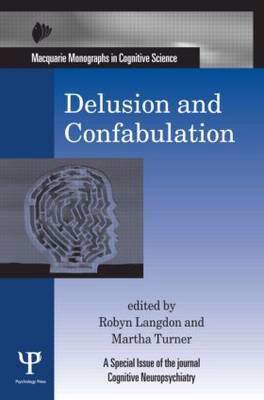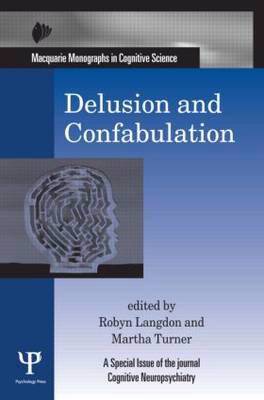
- Retrait gratuit dans votre magasin Club
- 7.000.000 titres dans notre catalogue
- Payer en toute sécurité
- Toujours un magasin près de chez vous
- Retrait gratuit dans votre magasin Club
- 7.000.0000 titres dans notre catalogue
- Payer en toute sécurité
- Toujours un magasin près de chez vous
Delusion and Confabulation
A Special Issue of Cognitive Neuropsychiatry
Description
People with psychiatric and neurological illness sometimes say and think the most amazing things. They might believe they are dead; claim to see, despite being blind; or "remember" things that never happened. Historical demarcations between academic disciplines dictate that these are distinct clinical phenomena - 'delusion', 'anosognosia' (the delusional denial of illness on some accounts) or 'confabulation'. This Special Issue brings together leading researchers from diverse fields - memory researchers, clinical neuropsychologists, psychiatrists, cognitive scientists and philosophers - to consider the extent to which these different phenomena overlap. Opinions differ. Some researchers use the term confabulation very generally to refer to false claims whether these concern belief or memory. Other researchers advocate an exclusive approach, according to which no symptom could ever qualify as both delusional and confabulatory. Yet others focus on points of similarity and argue that historical discord between psychodynamic and cognitive neuroscientific approaches has obscured similarities with regard the roles of emotion and motivation. Some contributors highlight both difference and similarity; they consider points of overlap - the instances of confabulation which qualify as delusional - or advocate a common monitoring framework to explain all distortions of reality. Despite their differing views, our contributors all share the common aims of clarifying theoretical conceptions, evaluating similarities and differences, and learning more about underlying causal mechanisms so as to advance the cognitive neuropsychiatry of both delusion and confabulation.
Spécifications
Parties prenantes
- Editeur:
Contenu
- Nombre de pages :
- 376
- Langue:
- Anglais
- Collection :
Caractéristiques
- EAN:
- 9781848727243
- Date de parution :
- 21-04-10
- Format:
- Livre relié
- Format numérique:
- Genaaid
- Dimensions :
- 175 mm x 246 mm
- Poids :
- 815 g

Les avis
Nous publions uniquement les avis qui respectent les conditions requises. Consultez nos conditions pour les avis.





